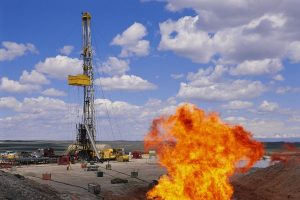 Over the last several weeks, widespread reporting has documented the Trump administration’s efforts to undermine the scientific consensus on climate change. Recent reports have shown White House attempts to block a senior state department official’s testimony on climate change, and documents that EDF recently obtained through Freedom of Information Act requests show Trump administration advisor William Happer coordinating closely with the Heartland Institute to discuss work that sought to undermine climate science.
Over the last several weeks, widespread reporting has documented the Trump administration’s efforts to undermine the scientific consensus on climate change. Recent reports have shown White House attempts to block a senior state department official’s testimony on climate change, and documents that EDF recently obtained through Freedom of Information Act requests show Trump administration advisor William Happer coordinating closely with the Heartland Institute to discuss work that sought to undermine climate science.
At the same time, the Trump EPA has likely taken another step towards entirely deregulating a powerful climate pollutant. Last week, the Trump EPA sent to the Office of Management and Budget a proposal that is expected to entirely eliminate direct regulation of methane from the oil and gas sector — an action that is starkly at odds with the overwhelming body of scientific evidence on the harmful nature of methane pollution and one that even some of the biggest industry leaders have come out publicly against.
This, along with an earlier proposed methane rollback, is an effort to dramatically weaken pollution limits at new and recently built oil and gas wells, and an attempt to prevent any federal oversight of pollution from the remaining 850,000 plus ‘existing’ oil and gas facilities across the country.
Attack on climate safeguards comes as Trump administration seeks to undermine the fundamental science of climate change
The Trump administration’s push to strip climate protections comes as the administration seeks to sow doubt about the science of climate change, even as millions of Americans are already suffering the consequences of a changing climate. Now, for the first time, the Trump EPA is seeking to deregulate an entire climate pollutant, despite clear science showing that oil and gas methane pollution is a large contributor to climate change and a significant source of potent methane pollution in the United States.
For example, an extensive, peer reviewed scientific study concluded in 2018 found the U.S. oil and gas industry emits over 13 million metric tons of methane pollution every year. That is 60% higher than EPA estimates suggest, and has a short-term climate impact equal to driving more than 200 million cars on the road for a year. And because it is more than 80 times more potent than carbon dioxide over the first twenty years after it is emitted, methane pollution is responsible for a quarter of the climate change we are currently experiencing.
Trump’s EPA moves one step closer to dangerous proposal to eliminate methane pollution standards Share on XDespite this overwhelming body of scientific evidence, in remarks several weeks ago, EPA Administrator Andrew Wheeler suggested that oil and gas sector methane emissions may not be significant enough to warrant protections under the Clean Air Act — cynically claiming that EPA might attempt to support this clearly erroneous conclusion (and dodge the agency’s previous contradictory findings) by splitting up the category of oil and gas sources into smaller component parts.
Industry leaders’ request continued (and expanded) methane regulation
This latest move comes as a chorus of prominent oil and gas companies spoke out in favor of not only keeping direct federal regulation of methane, but also going further and asking for the methane rules to be expanded to existing facilities.
Shell and BP both recently spoke out in the media in favor of keeping the rules for methane intact, and asked the Trump administration to extend them to existing sources. ExxonMobil and Equinor have also spoken out in favor of both new and existing source EPA methane rules.
These company statements come as a broader focus is being placed on climate action across the country, with states, like New Mexico, moving forward with methane standards for the oil and gas sector. Moreover, it is becoming more widespread for all types of oil and gas companies to implement methane management practices and set reduction goals in their own operations.
No substitute for strong federal standards
As BP said in an op-ed, companies should realize that federal rules keep methane pollution across the whole industry in check and help “protect natural gas’s license to operate.” BP continued saying “voluntary actions by several energy companies are not enough to solve the problem.”
However, to date, a number of oil and gas companies that are active in monitoring and mitigating methane emissions have not yet disclosed their position on continued federal methane regulation. Notably, companies like these are facing increasing pressure from investors to support smart methane policies.
If the oil and gas industry as a whole is serious about addressing its climate impact, more companies need to speak out in support of continued direct regulation of methane, both with their trade associations and with the Trump administration. Companies that stay silent remain on the wrong side of history and jeopardize the industry’s social license to operate.
Last week’s news highlights that the Trump administration is moving forward with an ill-conceived and reckless plan to strip federal methane safeguards — echoing the administration’s broader disregard of science and against the wishes of many oil and gas companies. We will continue to work with a diverse range of stakeholders to defend these common-sense standards to reduce climate destabilizing and health harming pollution from the oil and natural gas sector.









